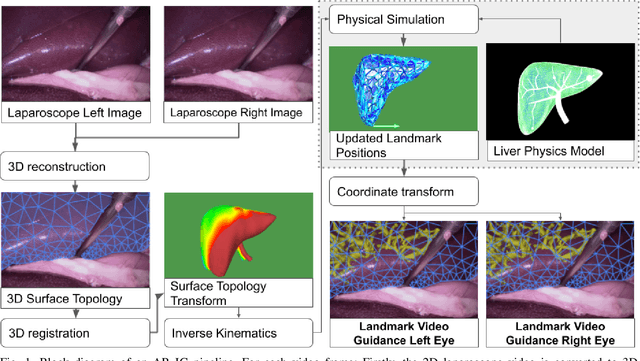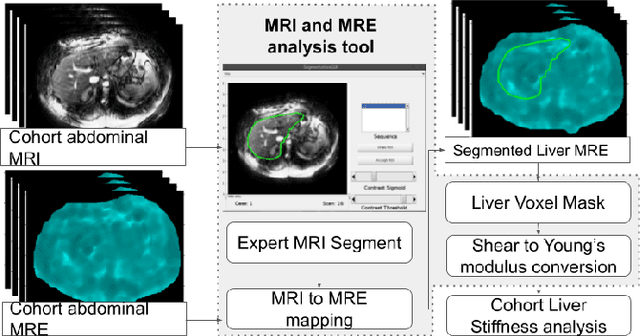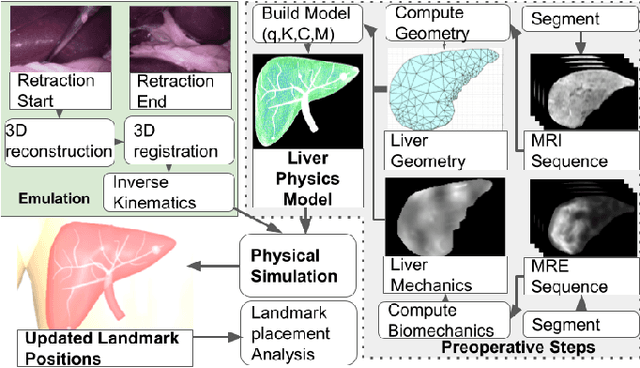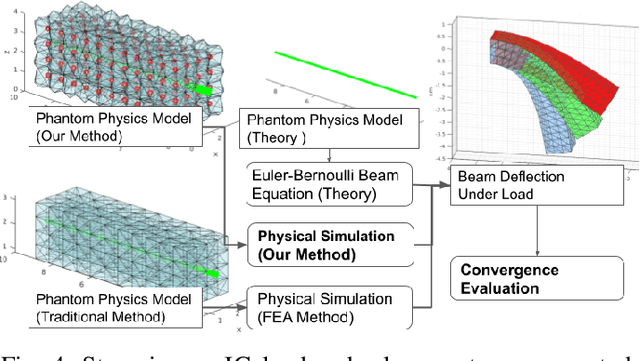Claude Sirlin
Patient Specific Biomechanics Are Clinically Significant In Accurate Computer Aided Surgical Image Guidance
Jan 29, 2020



Abstract:Augmented Reality is used in Image Guided surgery (AR IG) to fuse surgical landmarks from preoperative images into a video overlay. Physical simulation is essential to maintaining accurate position of the landmarks as surgery progresses and ensuring patient safety by avoiding accidental damage to vessels etc. In liver procedures, AR IG simulation accuracy is hampered by an inability to model stiffness variations unique to the patients disease. We introduce a novel method to account for patient specific stiffness variation based on Magnetic Resonance Elastography (MRE) data. To the best of our knowledge we are the first to demonstrate the use of in-vivo biomechanical data for AR IG landmark placement. In this early work, a comparative evaluation of our MRE data driven simulation and the traditional method shows clinically significant differences in accuracy during landmark placement and motivates further animal model trials.
 Add to Chrome
Add to Chrome Add to Firefox
Add to Firefox Add to Edge
Add to Edge